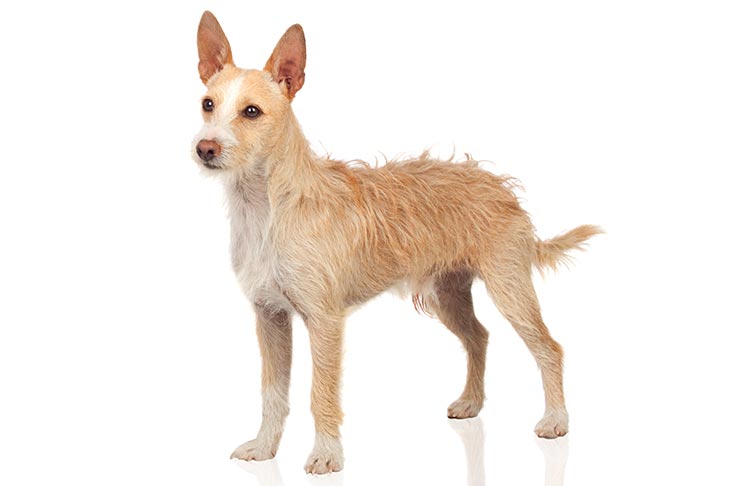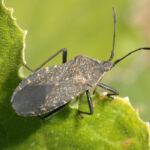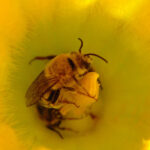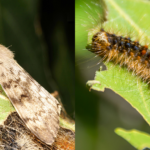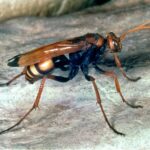Portuguese Podengo: History, Facts, Size, Habitat, Classification
In this blog post, we dive into the fascinating world of a wonderful animal called the Portuguese Podengo. The Portuguese Podengo is a breed of dog that originated in Portugal and has a rich history dating back several centuries. This breed is known for its intelligence, agility, and loyalty, making it a popular choice for many pet owners.
The Portuguese Podengo comes in three different sizes: small, medium, and large. The small Podengo typically weighs around 9 to 13 pounds, while the medium and large ones can weigh up to 35 pounds or more. These dogs have a strong and muscular build, with erect ears and a short coat that comes in a variety of colors.
In terms of habitat, Portuguese Podengos are adaptable and can live in various environments, be it in rural or urban settings. They are energetic animals that require regular exercise to keep them happy and healthy. This breed is known for its keen senses and excellent hunting skills, which were particularly useful in their earlier history when they were used for hunting rabbits and other small game.
In conclusion, the Portuguese Podengo is a remarkable breed of dog with a rich history, impressive facts, and unique characteristics. Their size, habitat adaptability, and classification as a hunting dog make them a renowned and beloved animal. If you want to learn more about different fascinating animals, make sure to check out our previous article on 155+ Animal Names!
History of Portuguese Podengo
The Portuguese Podengo is an ancient breed of dog that originated in Portugal. It has a long history that dates back many centuries. The Podengo is often considered a national treasure and is deeply woven into the country’s culture and heritage.
The exact origins of the Portuguese Podengo are unclear, but it is believed to have existed in Portugal since Pre-Roman times. These small, agile dogs were originally used for hunting small game, such as rabbits and rats. Their excellent sense of smell and ability to navigate rough terrains made them perfect for this task.
Over the years, the Portuguese Podengo has been highly valued for its hunting skills and was often kept by the Portuguese nobility. This breed played a crucial role in controlling the populations of small animals that could damage crops and spread diseases. They were highly regarded for their loyalty, intelligence, and adaptability.
In recent times, the Portuguese Podengo has gained recognition outside of Portugal and has become increasingly popular as a companion and show dog. Despite its long history, the breed remains relatively unknown in many parts of the world. However, its unique characteristics and strong connection to Portuguese culture continue to capture the hearts of those who discover this charming and spirited breed.
Importance of Portuguese Podengo
The Portuguese Podengo is a special animal that is important for many reasons. Firstly, these animals are great hunters. They have a strong sense of smell, sharp eyes, and excellent hearing, which helps them find and catch prey. This is important because it helps control the population of certain animals, like rabbits and rodents, which can cause harm to crops or spread diseases.
Another reason why the Portuguese Podengo is important is because of its loyalty and companionship. These animals are known to be very loving and devoted to their owners. They make great family pets and provide comfort and support to their human companions. This is important for people’s emotional well-being, as having a pet can reduce stress and loneliness.
Lastly, the Portuguese Podengo is important for preserving its breed. These animals have a long history and are part of the cultural heritage of Portugal. By keeping and breeding these dogs, people are ensuring that this unique breed continues to exist for future generations to enjoy. This is important because biodiversity is crucial for maintaining a healthy and diverse animal kingdom.
In summary, the Portuguese Podengo is a special animal that is important for its hunting abilities, loyalty, and preservation of its breed. They help control populations of certain animals, provide companionship to their owners, and contribute to biodiversity.
Amazing Facts About Portuguese Podengo
1. The Portuguese Podengo is a breed of small to medium-sized hunting dog that originated in Portugal.
2. There are three sizes of Portuguese Podengo: Grande (large), Medio (medium), and Pequeno (small).
3. The Pequeno size is the most popular and common type of Portuguese Podengo.
4. Portuguese Podengos are known for their keen sense of smell and excellent hunting abilities.
5. These dogs have a slender and athletic build with a short coat that can be smooth or wire-haired.
6. They come in a variety of colors, including yellow, fawn, brown, black, and white.
7. Portuguese Podengos are intelligent and independent dogs that require patient and consistent training.
8. They have a strong instinct to chase and hunt small animals, so they need to be properly socialized with other pets.
9. Despite their hunting background, Portuguese Podengos can also make great family pets due to their loyalty and affectionate nature.
10. They are generally good with children, but early socialization and supervision are still necessary.
11. Portuguese Podengos are energetic dogs that need regular exercise to keep them mentally and physically stimulated.
12. They are well-suited for activities like agility, obedience, and tracking trials.
13. Portuguese Podengos have a strong prey drive, so they should always be kept on a leash or in a securely fenced yard.
14. They have a natural tendency to bark and make a good watchdog, but excessive barking can be controlled with proper training.
15. The average lifespan of a Portuguese Podengo is around 12 to 15 years.
Can we keep Portuguese Podengo as our Pet?
The Portuguese Podengo is a special kind of animal that sometimes people choose to have as a pet. However, it is important to know that we should not have them as pets because they are extinct. This means that there are no more Portuguese Podengos alive in the world. We cannot keep them as pets because there simply aren’t any left.
The extinction of the Portuguese Podengo happened for different reasons. One reason could be that humans did not take care of them properly and their population became smaller and smaller. Another reason could be that their natural habitats, where they used to live, were destroyed by humans. This means that they lost their homes and could not survive anymore. It is sad that this animal became extinct, and it is important for us to learn from this and take better care of the animals that are still alive today.
Even though we cannot have Portuguese Podengos as pets because they are extinct, we can still learn about them and appreciate how special they were. It is important for us to understand that animals are living creatures and they deserve our respect and protection. We should do our best to take care of the animals that are still alive and help them to thrive in their natural environments. Our actions can make a big difference in preserving the diversity of life on Earth.
Size of Portuguese Podengo
The Portuguese Podengo is a small-sized animal. It is not very big like some other dog breeds. On average, a Portuguese Podengo can reach a height of about 12 to 22 inches at the shoulder. That’s about the same size as a ruler or a laptop! They are not too heavy either, weighing between 9 to 28 pounds, which is similar to carrying a backpack or a watermelon.
Despite being small, the Portuguese Podengo is known for its lively and energetic nature. They have long and agile bodies, which makes them great hunters and excellent jumpers. Their small size also makes them suitable for living in apartments or houses with limited space. They can easily adapt to different environments and are friendly with other animals and people around them.
The size of a Portuguese Podengo can vary depending on the type or variety. There are three varieties: small, medium, and large. The small variety is the smallest in size, while the large variety is the largest. It’s important to remember that not all Portuguese Podengos are the same size; they can come in different sizes within the breed.
In conclusion, Portuguese Podengo dogs are small in size compared to other dog breeds. They measure around 12 to 22 inches tall and weigh between 9 to 28 pounds. However, their small size doesn’t limit their spirits, as they are energetic and agile animals. They come in different sizes depending on the variety, but all Podengos are capable of bringing joy and companionship to their owners.
Habitat of Portuguese Podengo
The Portuguese Podengo is a small dog that can be found in Portugal. They are adapted to live in various habitats, including rural and urban areas. In rural areas, they often live on farms or in countryside homes. They enjoy having plenty of space to explore and run around. Sometimes, they may even help their owners by chasing away rodents or other small animals that can cause harm to crops or livestock.
In urban areas, Portuguese Podengos can be found living in houses or apartments with their families. They are happy as long as they get enough exercise and mental stimulation. They enjoy going for walks in the park, playing fetch, or even participating in dog sports. Some families may even have a yard where the dog can play and dig safely. However, it is important to remember that Portuguese Podengos are very curious dogs and need to be monitored closely to ensure their safety.
Overall, Portuguese Podengos are adaptable animals that can live in different habitats. They are versatile and can thrive in both rural and urban areas, making them a great pet choice for families living in different environments. No matter where they live, they require love, attention, exercise, and mental stimulation to lead happy and healthy lives.
Evolution of Portuguese Podengo
The Portuguese Podengo is a special type of animal that has been around for a very long time. Its evolution can be traced back many centuries, starting with its ancestors. These ancestors were small dogs that lived in Portugal a long time ago. Over time, these dogs adapted to the environment and developed unique traits that helped them survive.
As the years went by, the Portuguese Podengo continued to evolve. It became skilled at hunting small animals like rabbits and rats. Its keen senses, such as sharp hearing and a great sense of smell, made it an excellent hunter. The Podengo’s coat also changed to suit its surroundings. Some had short hair for warmer climates, while others had longer hair to keep them warm in cooler areas.
Throughout history, people in Portugal valued the Podengo for its hunting abilities. They even used the dogs to catch rabbits and other small animals for food. The Podengo’s intelligence and agility made it a valuable companion and hunting partner. Today, these dogs are still loved by many people in Portugal and other parts of the world.
In conclusion, the Portuguese Podengo has come a long way in its evolution. From small dogs living in Portugal to skilled hunters, these animals have adapted to their surroundings and become cherished companions. Their unique traits and abilities have made them special in the eyes of many.
Classification of Portuguese Podengo
The Portuguese Podengo is a type of animal that belongs to the dog family. It comes from the country of Portugal, which is in Europe. The Podengo is a small dog that has a slender body and pointy ears. It has a short and smooth coat, which can be either brown, yellow, or a mix of both colors. The Portuguese Podengo is known for its agility and speed.
In terms of classification, the Portuguese Podengo is categorized as a breed of dog. It is included in the hound group, which is a group of dogs that are known for their hunting skills. The Podengo is specifically classified as a primitive breed, which means that it is one of the oldest types of dog breeds. This classification is based on its close resemblance to wild or ancient dog breeds.
There are three different sizes of the Portuguese Podengo: small, medium, and large. These sizes are further divided into two types: smooth and wire-haired. The smooth type has short and sleek fur, while the wire-haired type has a rough and textured coat. Each size and coat type has its own unique characteristics and traits.
Overall, the Portuguese Podengo is an interesting and unique animal. It is a type of dog that originated in Portugal and is known for its hunting abilities. With its slender body, pointy ears, and short coat, it is easily recognizable. Its classification as a primitive breed showcases its ancient origins, and its various sizes and coat types add to its diversity.
Types of Portuguese Podengo
1. Portuguese Podengo Pequeno: This is the smallest type of Portuguese Podengo and is known for its energetic and playful nature. They are great companions and are commonly used for hunting small game.
2. Portuguese Podengo Medio: The Portuguese Podengo Medio is a medium-sized breed known for its agility and intelligence. They are often used in hunting and tracking, with a strong sense of smell that makes them excellent at finding prey.
3. Portuguese Podengo Grande: As the largest type of Portuguese Podengo, the Grande is known for its strength and endurance. They are often used for hunting larger game and are fearless and determined in their pursuits.
4. Wirehaired Podengo Pequeno: This variation of the Portuguese Podengo Pequeno has a wiry, coarse coat that provides protection against harsh weather and undergrowth. They are loyal and alert dogs with a strong hunting instinct.
5. Wirehaired Podengo Medio: Similar to the Wirehaired Podengo Pequeno, this type of Portuguese Podengo has a wirehaired coat, adding a level of ruggedness to their appearance. They are intelligent, agile, and make excellent hunting companions.
6. Smooth-haired Podengo Pequeno: This variety of Portuguese Podengo Pequeno has a short, smooth coat that requires minimal grooming. They are agile, friendly, and make great family pets due to their affectionate nature.
7. Smooth-haired Podengo Medio: Like the Smooth-haired Podengo Pequeno, this type has a short coat but in a slightly larger size. They are versatile dogs, excelling in hunting and agility activities, and are known for their loyalty and high energy levels.
8. Podengo Portugues de pelo cerdoso (Warren Hound): Also known as the Warren Hound, this variation of the Portuguese Podengo has a dense, coarse coat and is primarily used for hunting in rocky and rough terrains. They have a strong prey drive and are highly alert.
9. Podengo Portugues de pelo liso (Smooth-haired Portuguese Warren Hound): This type of Portuguese Podengo has a smooth coat but with a stockier build compared to other varieties. They are athletic dogs with an excellent sense of smell, making them efficient hunters.
10. Podengo Portugues de pelo duro (Wirehaired Portuguese Warren Hound): The Wirehaired Portuguese Warren Hound has a rough, wiry coat that gives them protection in the field. They are tenacious and determined hunters, adapt well to different terrains, and are highly intelligent.
Geographical Presence of Portuguese Podengo
The Portuguese Podengo animal is typically found in the regions of Portugal, where it originates from. This small to medium-sized breed is commonly seen in various parts of the country, including the mainland and the Azores Islands. The Portuguese Podengo is a popular breed in Portugal and is often used for hunting rabbits due to its exceptional sense of smell and agile nature.
However, Portuguese Podengos are not commonly found in many other regions of the world. While there may be some individuals or breeders who have imported or acquired Portuguese Podengos outside of Portugal, this breed is relatively rare in most other countries. It is mostly recognized and appreciated within its native country and has a limited presence in other parts of the globe.
Despite its unique characteristics and abilities, the Portuguese Podengo is not widely distributed like some other dog breeds. This lack of popularity in many regions can be attributed to several factors, including limited awareness of the breed, availability of other similar dog breeds, and the specific uses for which the Portuguese Podengo was originally bred.
In summary, the Portuguese Podengo animal is primarily found in Portugal, where it is regarded as a well-known breed and is often used for hunting rabbits. However, it is not commonly found in many other regions worldwide as its presence is limited outside of its native country.
Scientific Name of Portuguese Podengo
The scientific name of the Portuguese Podengo animal is Canis lupus familiaris. This peculiar breed is a type of domestic dog that originated in Portugal. It belongs to the Canidae family, which includes other dog breeds as well as wolves, foxes, and other related animals.
The Portuguese Podengo is a small to medium-sized dog known for its agility and hunting skills. It has a slender and muscular body, with erect ears and a tapered tail. This breed comes in three different sizes, including small, medium, and large, each with its own unique characteristics.
These dogs are highly energetic and require regular exercise and mental stimulation. They have a strong instinct for hunting, so it is important to keep them physically active and mentally engaged. The Portuguese Podengo is known for being a loyal and friendly companion and can be a great addition to an active family or individual.
In conclusion, the Portuguese Podengo, scientifically known as Canis lupus familiaris, is a breed of domestic dog originating from Portugal. With its agility and hunting skills, this energetic dog makes a loyal and friendly companion for active individuals or families.
Diet of Portuguese Podengo
The diet of a Portuguese Podengo, a kind of animal, is very important to keep it healthy and strong. These animals need a balanced diet with a mixture of different foods to provide them with all the nutrients they need.
Firstly, a Portuguese Podengo needs a good source of protein in its diet. This can come from meats such as chicken, turkey, or fish. Protein is important for their muscles and overall growth. It helps them stay active and energetic.
Secondly, these animals also need carbohydrates in their diet. Carbohydrates come from foods like rice, oats, and vegetables. Carbs give them energy to run and play. It is important to feed them the right amount of carbohydrates to keep them fit and happy.
Lastly, a healthy diet for a Portuguese Podengo also includes fruits and vegetables. These provide them with vitamins and minerals that are essential for their overall health. Fruits like apples and bananas, and vegetables like carrots and peas, can be given to them as treats or added to their main meals.
In conclusion, a balanced diet including protein, carbohydrates, fruits, and vegetables is very important for the diet of a Portuguese Podengo. Providing them with the right foods will help keep them healthy, strong, and full of energy.
Locomotion of Portuguese Podengo
The Portuguese Podengo is a small and lively animal from Portugal. It has a unique way of moving called locomotion. Locomotion is the way an animal moves its body and travels from one place to another.
The Portuguese Podengo has strong and agile legs that help it move quickly and easily. When it walks, it puts one foot in front of the other, just like we do when we walk. But what makes the Portuguese Podengo special is how it uses its back legs to jump and hop. It can leap through the air with grace and speed, making it a fantastic hunter. Its locomotion allows it to chase after prey and catch them in no time.
In conclusion, the Portuguese Podengo has a fascinating way of moving called locomotion. It uses its strong legs to walk, jump, and hop, which makes it a skilled hunter. Next time you see a Portuguese Podengo, watch how it moves and appreciate its unique locomotion!
Social and Sexual Behaviour of Portuguese Podengo
The Portuguese Podengo is a small dog breed that is known for its social and sexual behaviors. One important aspect of its social behavior is its tendency to bond closely with its family. It loves being around humans and often forms strong connections with its owners. This breed is very affectionate and enjoys spending time with people, whether it’s cuddling on the couch or going for walks together.
When it comes to sexual behavior, male Portuguese Podengos can sometimes display dominant behavior, especially when around other male dogs. They may try to establish their dominance by showing aggressive or territorial traits. On the other hand, female Podengos tend to be more submissive in nature.
It’s important to take note of these characteristics when considering this breed as a pet. While they can be loving and friendly, they may require training and socialization to avoid any dominance or aggression issues. With proper care and attention, the Portuguese Podengo can make a wonderful companion for families who are willing to invest time in understanding and meeting their social and sexual behavior needs.
Reproduction and Lifecycle of Portuguese Podengo
The Portuguese Podengo is a small, lively dog that belongs to the hound group. Just like other animals, these dogs have a life cycle that includes reproduction. So, let’s explore how Portuguese Podengos reproduce and grow!
The reproduction of Portuguese Podengos starts when a male and a female dog mate. The female dog goes through a special cycle known as the estrous cycle, also called the heat cycle. During this time, she becomes receptive to the male’s advances. If mating occurs, the male’s sperm fertilizes the female’s eggs, and she becomes pregnant.
After about 63 days, the female gives birth to a litter of puppies. This is an exciting time as the puppies are born blind and deaf, relying on their mother for everything. The mother provides milk and care for her puppies, keeping them warm and clean. As the weeks pass by, the puppies begin to grow and develop. Their eyes and ears open, and they start exploring their surroundings.
As the Portuguese Podengo puppies grow, they become more independent. They learn to eat solid food and start to play and interact with their littermates. This is an important time in their life cycle, as they develop their social and physical skills. As they continue to grow, they become more active and curious, exploring their environment with enthusiasm.
In summary, Portuguese Podengos reproduce by mating, and after about 63 days, the female dog gives birth to a litter of puppies. The puppies start their life cycle as blind and deaf, dependent on their mother for everything. As they grow, they become more independent, learning important skills that will help them throughout their adult life.
Threats to Portuguese Podengo
The Portuguese Podengo is facing several threats that put its survival and well-being at risk. One major danger is the loss of habitat. As humans expand their cities and clear forests for agriculture or infrastructure, the natural homes of Portuguese Podengos are being destroyed. Without their natural environment, these animals struggle to find food, shelter, and mates, which negatively affects their populations.
Another threat to Portuguese Podengos is hunting. Unfortunately, these dogs are sometimes illegally targeted by hunters. Some people believe that Portuguese Podengos can help them catch rabbits or other small animals. However, using dogs for hunting is often illegal and cruel, as it can cause harm to both the dogs and the animals they are chasing. This practice poses a serious risk to the Portuguese Podengo population, as it can lead to injuries or even death.
Finally, another challenge for Portuguese Podengos is their vulnerability to diseases and parasites. Just like humans, these animals can get sick. If they do not receive proper veterinary care, they may suffer from preventable illnesses or parasites, such as fleas or ticks. Without proper treatment, these health issues can weaken the Portuguese Podengos, making them more susceptible to other threats and potentially leading to a decline in their population.
In conclusion, the Portuguese Podengo faces various threats to its survival, including habitat loss, hunting, and vulnerability to diseases and parasites. Protecting their natural habitat, ensuring that hunting laws are enforced, and providing veterinary care are essential actions to safeguard these animals and help them thrive in the future.
Population of Portuguese Podengo
The population of the Portuguese Podengo animal is estimated to be around 50,000 individuals worldwide. These animals are native to Portugal and are known for their small to medium size, pointy ears, and short or wire-haired coats. They are commonly used for hunting rabbits and other small game due to their strong sense of smell and agility. The Portuguese Podengo is recognized as a breed by various kennel clubs and has gained some popularity as a companion pet in recent years.
If, unfortunately, the Portuguese Podengo were to become extinct, it would mean that there are no more of these animals left on our planet. Extinction happens when a species completely disappears from existence, usually due to factors such as habitat loss, hunting, or disease. It is essential for humans to protect and conserve the natural habitats of animals like the Portuguese Podengo to prevent their extinction and maintain biodiversity.
In conclusion, the estimated population of the Portuguese Podengo is around 50,000 individuals, and it is important to safeguard their existence. While it is currently not extinct, it is crucial for us to take action to protect these animals and their habitats to ensure their survival for future generations.
Conclusion
In summary, the Portuguese Podengo is a fascinating breed of dog with a rich history and unique characteristics. This small to medium-sized animal, known for its resourcefulness and agility, has been a loyal companion to many for centuries.
The Portuguese Podengo was initially bred for hunting purposes and is well-adapted to its natural habitat. With its keen sense of smell and incredible speed, this breed excels in tracking and catching small game. Its classification as a hound gives it the ability to be an excellent hunter and explorer.
These animals come in different sizes, including small, medium, and large, with each size group having its own set of features and qualities. No matter the size, Portuguese Podengos are known for their intelligence and active nature, making them suitable pets for families who enjoy an active lifestyle.
In conclusion, the Portuguese Podengo is a remarkable breed with an impressive history and unique qualities. Its adaptability to various habitats, different sizes, and hunting capabilities make it stand out among other dog breeds. If you are looking for an intelligent, energetic, and loyal companion, the Portuguese Podengo might be the perfect choice for you.
Frequently Asked Questions about Portuguese Podengo (FAQ’s)
Q1: What is a Portuguese Podengo?
A1: The Portuguese Podengo is a small to medium-sized breed of dog that originated in Portugal.
Q2: How big do Portuguese Podengos get?
A2: There are three different sizes of Portuguese Podengo: small, medium, and large. Small Podengos typically weigh between 9 to 13 pounds, medium Podengos between 35 and 44 pounds, and large Podengos between 44 and 66 pounds.
Q3: Are Portuguese Podengos suitable for families?
A3: Yes, Portuguese Podengos are known to be friendly and affectionate with their families, making them suitable for families with children.
Q4: Do Portuguese Podengos require a lot of exercise?
A4: Yes, Portuguese Podengos are an active breed that requires regular exercise to keep them happy and healthy.
Q5: Are Portuguese Podengos good with other pets?
A5: Portuguese Podengos can be good with other well-socialized pets if properly introduced and socialized from a young age.
Q6: Are Portuguese Podengos easy to train?
A6: Portuguese Podengos are intelligent dogs, but they can be independent and stubborn, making consistent and patient training essential.
Q7: Do Portuguese Podengos shed a lot?
A7: Portuguese Podengos have a short and dense coat that requires minimal grooming, and they are considered to be a relatively low-shedding breed.
Q8: How long do Portuguese Podengos live?
A8: On average, Portuguese Podengos live between 12 to 15 years.
Q9: Are Portuguese Podengos good guard dogs?
A9: Portuguese Podengos are known to be alert and vocal, which makes them good watch dogs, but their friendly nature may make them less suitable as guard dogs.
Q10: Are Portuguese Podengos prone to any health issues?
A10: Overall, Portuguese Podengos are a healthy breed, but they may be prone to certain conditions like hip dysplasia and progressive retinal atrophy.
Q11: Are Portuguese Podengos good for apartment living?
A11: Portuguese Podengos can adapt to living in apartments if they receive enough exercise and mental stimulation.
Q12: Do Portuguese Podengos have a high prey drive?
A12: Yes, Portuguese Podengos have a strong prey drive due to their hunting background, so they may have a tendency to chase small animals.
Q13: Are Portuguese Podengos suitable for novice dog owners?
A13: Portuguese Podengos are known to be independent and may require experienced owners who can handle their training needs.
Q14: Do Portuguese Podengos have any specific grooming requirements?
A14: Portuguese Podengos have a short coat that is easy to maintain, requiring minimal grooming, such as occasional brushing and nail trimming.
Q15: Can Portuguese Podengos be left alone for long periods of time?
A15: Portuguese Podengos are social dogs and may become anxious or destructive if left alone for extended periods. They thrive in homes where they can receive plenty of attention and companionship.

Hi there! I’m Morgan Gutierrez, and I love animals! I work as a Seasonal Animal Care Specialist at Brookfield Zoo and also teach people about animals, which is super fun. I studied at Valparaiso University in Lockport, Illinois, where I learned even more about these amazing creatures.
I’m not just about taking care of animals; I write articles about them, too! I explore and share many interesting animal stories, from cute kittens to giant elephants.
In the past, I’ve worked with veterinarians, helped with research, and even been an Animal Ambassador, bringing animals closer to people. Animals are my passion, and I enjoy helping others learn about them. So, if you ever want to know about animals, feel free to ask. I’ll explain it in a way that’s easy to understand, just like talking to a friend!

